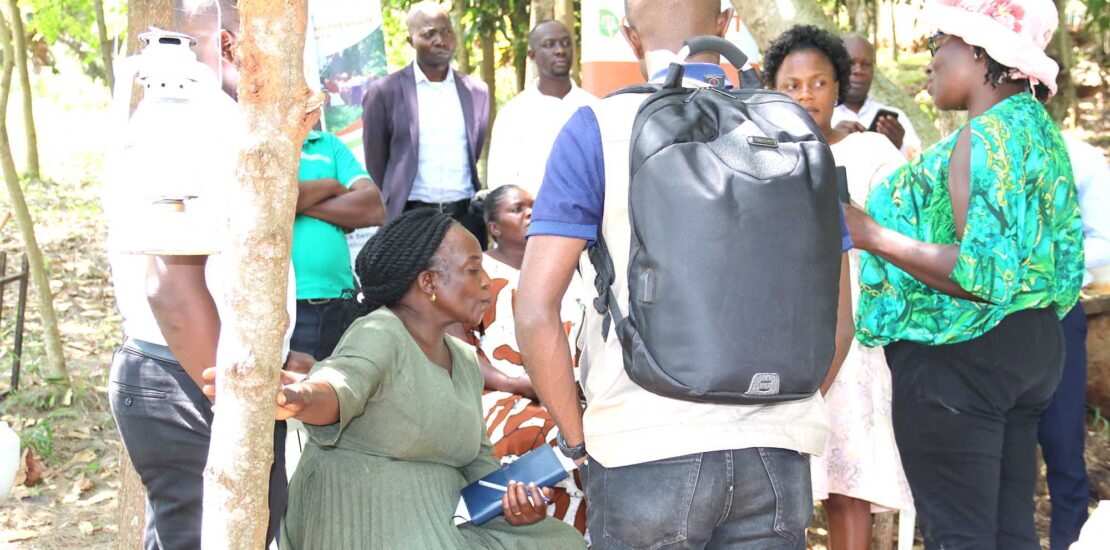Agroecology and Human Rights Analysis of the East African Laws and Legal Frameworks
- June 10, 2025
- Posted by: CEFROHT Reporter
- Category: Agroecology

Leveraging Law for Food Sovereignty, Climate Resilience, and Justice in East Africa
As the urgency to transform Africa’s food systems grows, the Centre for Food and Adequate Living Rights (CEFROHT) has taken a strategic legal step to advance agroecology in the region. Through its leadership and technical expertise, CEFROHT developed a Civil Society Organisation (CSO) position paper that conducts an in-depth human rights and agroecology analysis of the legal and institutional frameworks governing agriculture and trade within the East African Community (EAC).
This position paper critically examines how current legal instruments, particularly those related to agriculture, trade, food security, and the environment, can be reoriented to support agroecology using a human rights-based approach (HRBA).
In a historic moment for food systems advocacy, the CSO position paper was officially presented before the East African Legislative Assembly (EALA) on 14 November 2024 during a high-level policy engagement convened to explore avenues for integrating agroecology into the EAC legal and institutional architecture.
The presentation sparked strong interest from regional legislators, technical experts, and civil society leaders, who acknowledged the need to rethink the current agricultural development trajectory and embrace agroecology as a legal and policy priority.
Following this engagement, the paper is now being institutionalised as a long-term advocacy and engagement tool, not only with EALA but also with national parliaments of EAC partner states, ministries of agriculture, environment, and trade, the EAC Secretariat and policy departments, farmer movements, CSOs, academia, and legal networks across the region.
The position paper provides a comprehensive legal mapping and critique of core regional instruments, including the EAC Treaty and the Common Market Protocol. Key findings reveal that while the EAC region has developed progressive frameworks, they remain heavily tilted toward industrial agriculture, market liberalisation, and export-driven production models. The legal architecture lacks clear references to agroecology and ecological sustainability, offers limited protection for indigenous seed systems, biodiversity, and traditional farming knowledge, and relies on trade protocols that often conflict with ecological farming and seed sovereignty.
CEFROHT’s legal analysis repositions agroecology as a rights-based obligation for EAC partner states under the International Covenant on Economic, Social and Cultural Rights (ICESCR), the UN Declaration on the Rights of Peasants and Other People Working in Rural Areas (UNDROP), the African Charter on Human and Peoples’ Rights, the Sustainable Development Goals (SDGs), and Agenda 2063.
It calls on governments to adopt agroecology as a means of fulfilling the right to adequate food, the right to health through access to safe, nutritious, and culturally acceptable food, the right to land, water, and biodiversity, and the right to participate in shaping agricultural and trade policies that impact lives and livelihoods.
To ensure accuracy and legal credibility, the position paper was peer-reviewed by Professor Ebenezer Durojaye, a leading scholar in health and human rights law. His contributions sharpened the analysis and reinforced the paper’s utility as both an academic and practical advocacy tool.
Beyond EALA, the position paper is now being used to engage lawmakers, ministers, and technical officers in national and regional dialogues; inform the development of national agroecology bills, seed laws, and by-laws; strengthen CSO advocacy strategies and capacity-building across East Africa; inspire research, education, and litigation on agroecology and food justice; and mobilise grassroots voices and farmer organisations to participate in law-making processes.
By using the law to embed agroecology in public policy, CEFROHT and its partners aim to secure seed sovereignty, especially for women, indigenous peoples, and smallholder farmers; conserve biodiversity through agroecological production and traditional knowledge systems; build climate-resilient food systems that work with nature, not against it; and ensure that economic integration under the EAC is people-centred, sustainable, and ecologically just.
The CSO position paper is not a one-time publication; it is a strategic legal resource that will continue to be used to influence policy, reform laws, and amplify grassroots demands for agroecological transformation in East Africa.
Its presentation before EALA on 14 November 2024 marked a turning point, and CEFROHT is committed to building on this momentum to ensure that agroecology becomes a legally recognised, funded, and protected pathway for food systems change in the region.
Through law, advocacy, and collective action, we are paving the way for an East Africa where agroecology thrives—not as an exception, but as a norm rooted in justice, dignity, and sustainability.
